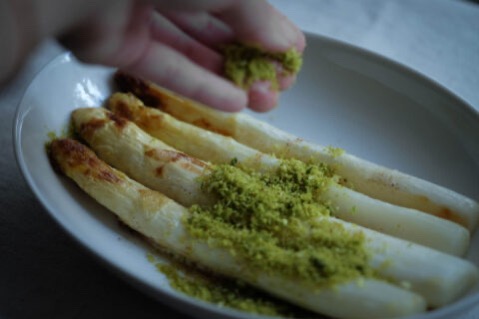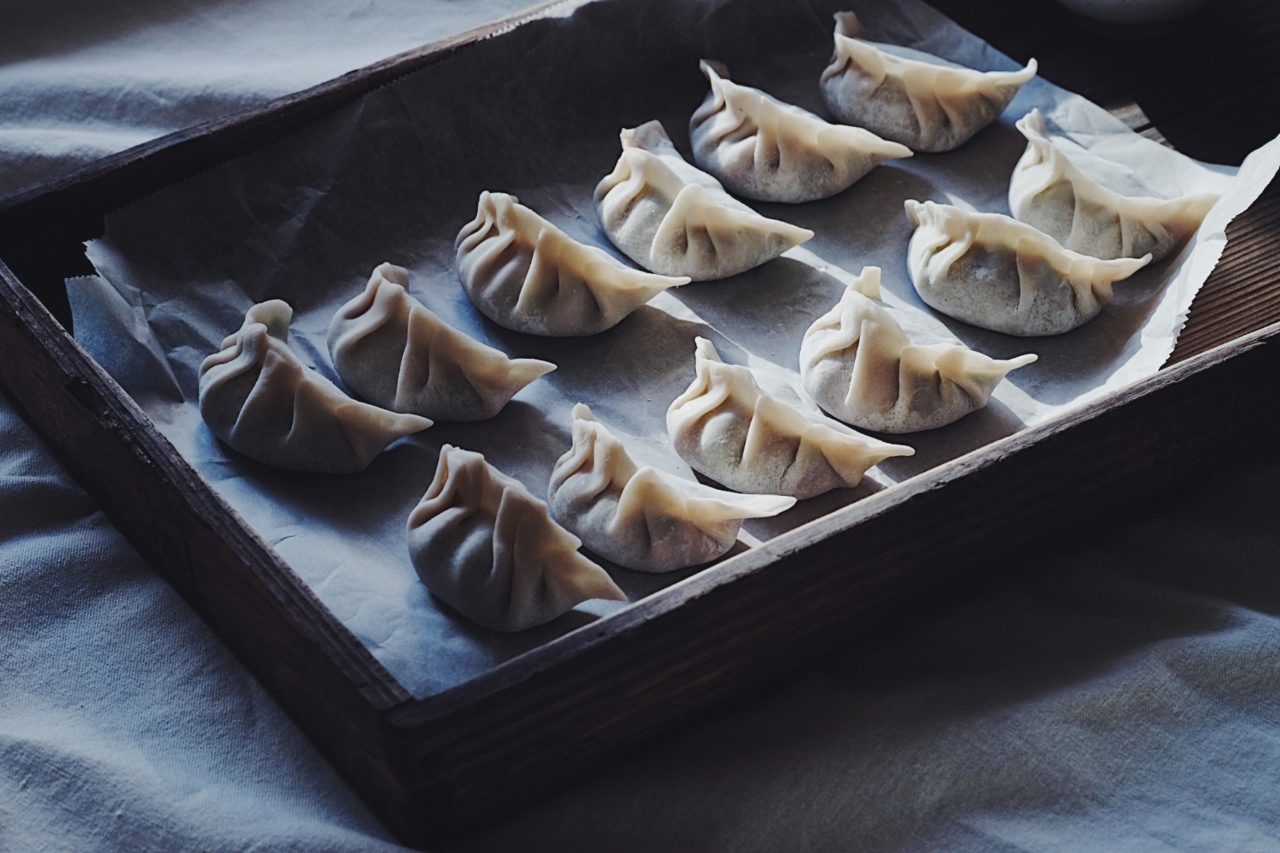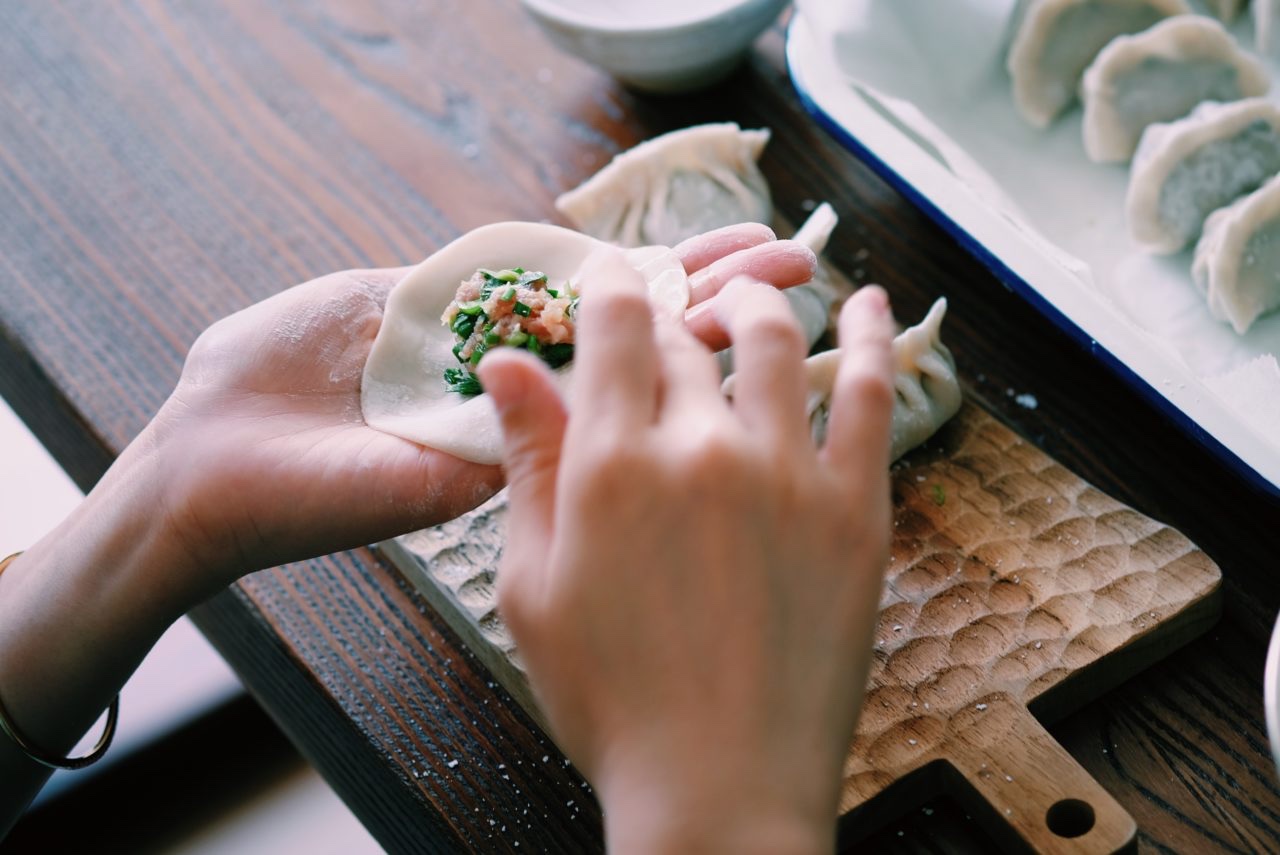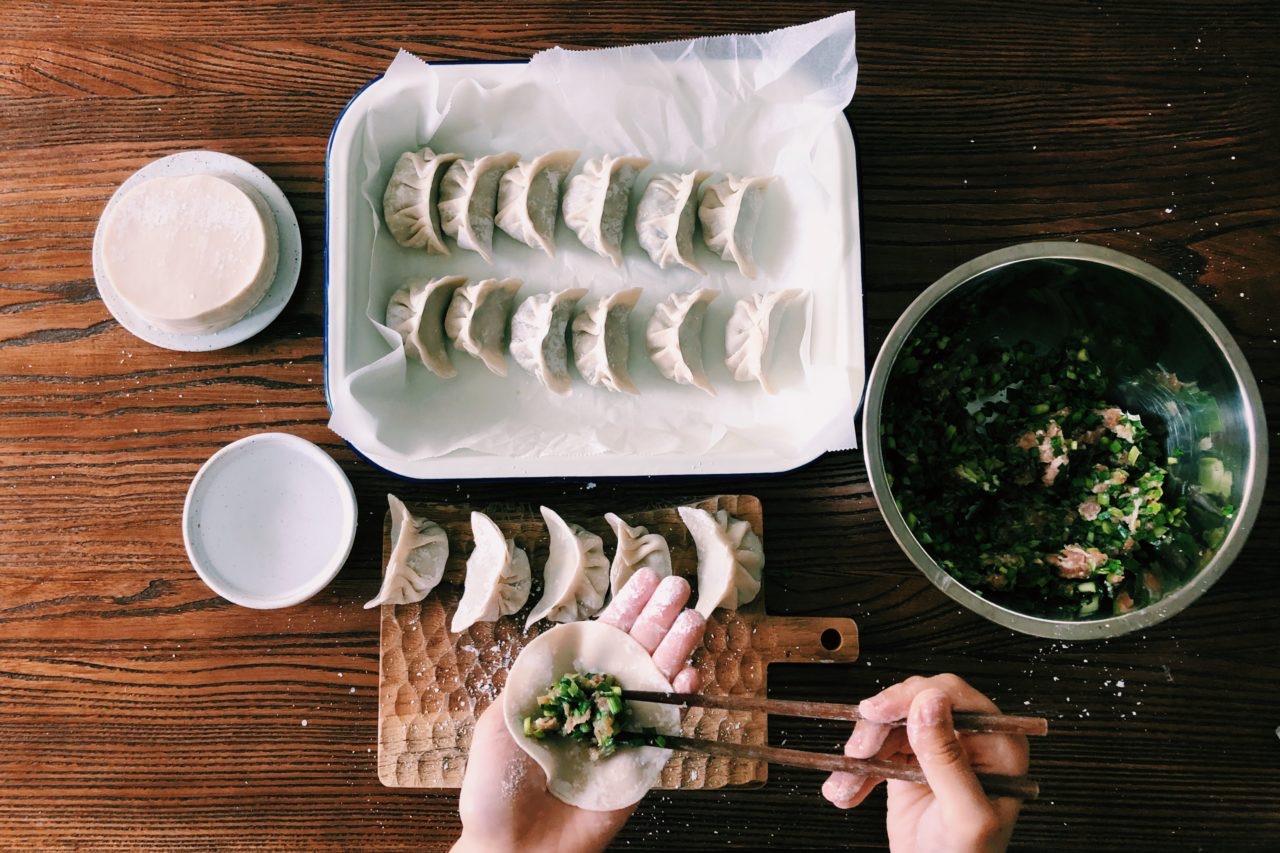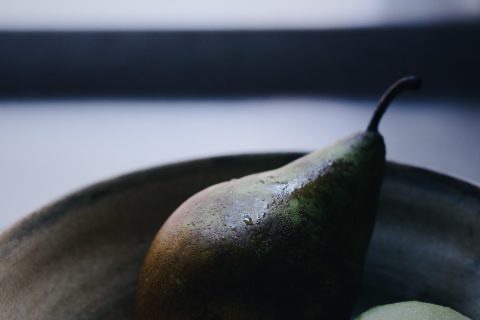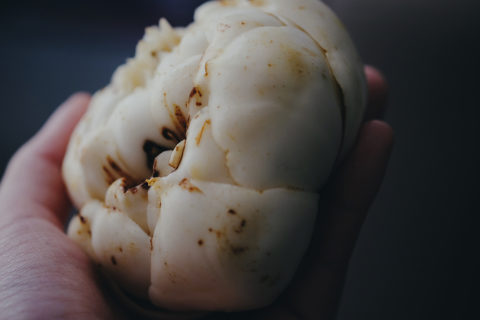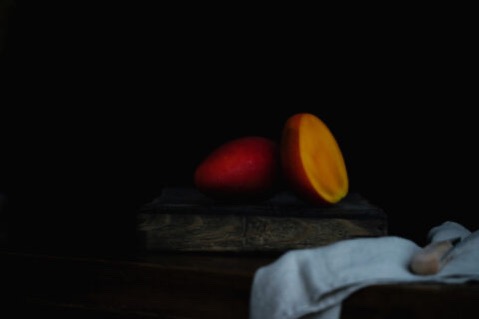早上到菜市場買了把新鮮韮菜、豬肉,還差一樣材料。街道狹小,兩旁還搭了小檔攤,賣着各種食品雜貨,偶爾路上人潮還得四散,好讓電車通過。在粉麵廠,店長隨手拿了一疊小圓皮,在蓋滿麵粉的舊式天秤上量了量,再放到小膠袋裡。餃子皮買好了。
回家把蔬菜洗好瀝乾切成小顆,豬梅肉切小塊再慢慢切成肉末。中午時分很安靜,砧板與刀碰撞以外的聲音,就只有屋外的鳥鳴蟲叫,偶或一二的車子駛過,帶過隨即消散的引擎聲。稍縱即逝的聲音,與偶爾飄過的白蘭花香氣,留在廳裡縈繞,伴着我把桌上的材料包成一顆顆餃子。
住在這小區好幾年,每年春夏交替之間,便聞到白蘭花香,卻從來只聞其香,不見其影。從沒看過那棵白蘭樹,但那花香卻每年靜靜地到訪。
餃子包好,燒熱平底鍋,下了油,在鍋裡放上餃子,圍着圓鍋一顆顆排好,中火慢煎。你愛吃煎得金黃香口的餃子;而我愛放湯煮,然後蘸辣油吃。但沒礙,都煮你愛的。我拿着一盤煎餃子、兩隻小碗兩雙箸、一張小布墊及汽水一罐,跟你走到外面去吃。
天氣似乎直接跳過春天,溫度猶如盛夏。你一邊吃,臉上一直冒汗,我拿出紙巾給你擦乾。某夜我們出外吃宵夜,你也是不住的冒汗。我沒帶紙巾,看着你的汗珠快要從鼻尖滴到麵裡,像傻瓜一樣,自此便記着以後要帶上紙巾。有時忘了,便隨手拿頸上的藍色棉圍巾給你擦汗,有時直接用手給你抹一把,而你總被我這些舉措嚇着。
我把最後一顆餃子給你,而你分了一半給我。吃飽,我用布墊把碗盤包好,在陽光下回去。
「這午後陽光很溫柔。」我說。
「你才溫柔。」隔了一會,你回答。
我一直在思考甚麼是溫柔。
是因為話輕言寡嗎?是因為細細輕撫你的臉嗎?
都不是,其實是因為懂得包容傷痛。自己的痛、別人的痛,生的死的、你的我的。
當感受過種種切膚之痛,煎熬過後,一切水過鴨背,了解也許任何生命都不值得承受傷痛。感受與了解,繼而轉化,把自己的傷口包裹好,同化,變作同理心。
有時我想像在難過的時候,仍能夠把你摟在懷裡,在你額角上吻,跟你輕聲說一句「沒事的。」仍然能夠相信一切會好過來的。溫柔是懂得包容傷痛,將之化作愛。
說穿了,能夠堅強,才懂得溫柔。
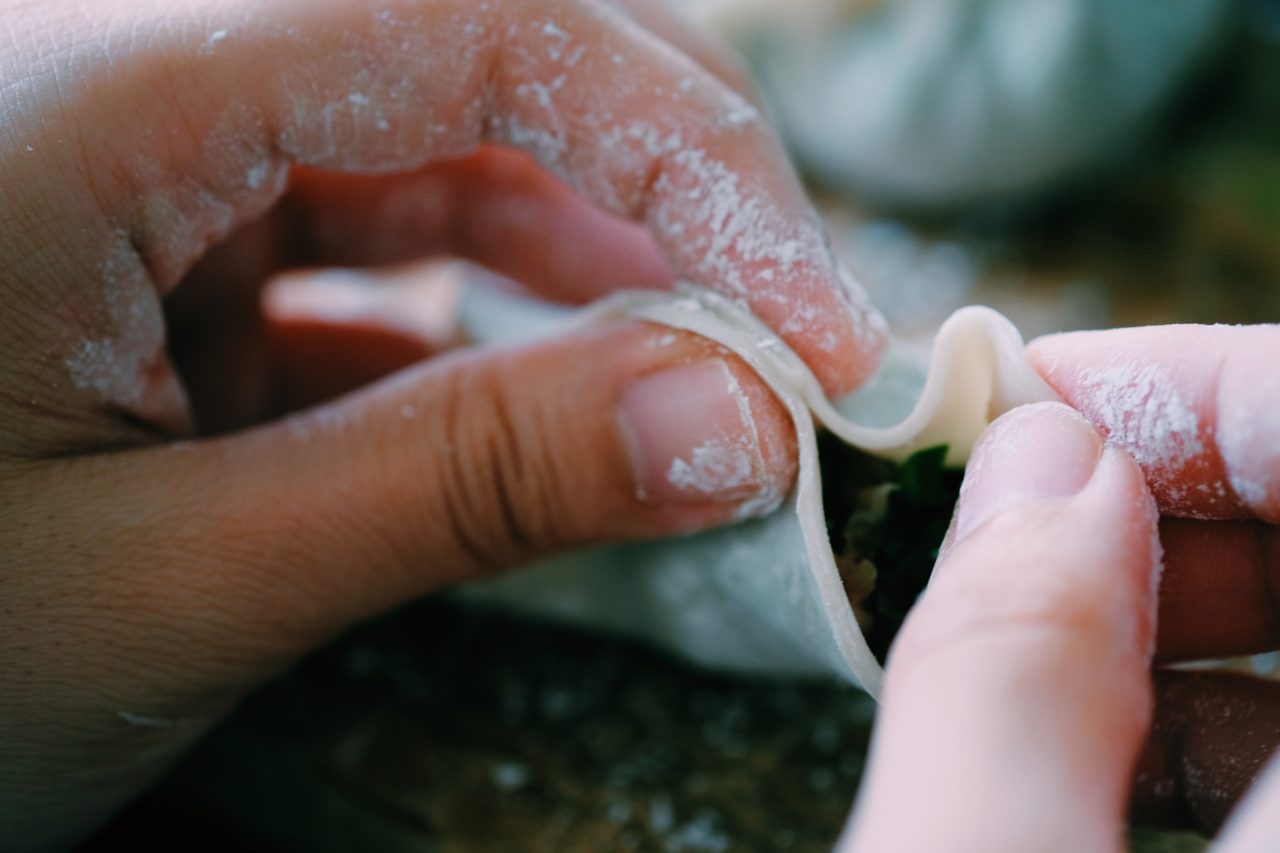
It’s mid-morning when I got to the wet market to get this fresh bunch of Chinese chives and pork tenderloin, and there was one last ingredient to check out. The street was by no means spacious, and there were stalls selling all sorts of groceries along both sides of the road. Shoppers had to make way from time to time for trams to pass by. I arrived the noodle shop where they sold fresh, raw noodles and dumpling wrappers. The lady grabbed a stack of round dumpling wrappers and weighed it on a vintage balance covered by a serious dust of flour. I paid for the wrappers she put in a small tight-fit plastic bag and left for home.
I washed and drained the chives and cut them into fine brunoise. I diced up the tenderloin and then slowly mince it. It was quiet. On top of the sound made from chopping, there were birds and cicada chirping, brief noise from engines from scattered cars passing by. Sounds were fleeting, so was the fragrance from white jade orchid flower, but they stayed in my living room, while I wrapped the pork and chives into dumplings.
Having lived in this neighbourhood for a good few years, I smelled this faint white jade orchid every year during the brief course between spring and summer. Yet, I’ve never seen the tree.
Dumplings were done. I heated up a pan, drizzled some oil, put in the freshly wrapped dumplings and patiently pan-fried them in medium heat. You like potstickers cooked crispy, and I like my dumplings cooked in soup and eat them with chili oil. But it didn’t matter. I would just cook them the way you liked. With a tray of dumplings, two small bowls, two pairs of chopsticks, a kitchen cloth and a can of coke, we enjoyed our lunch out there under the sun.
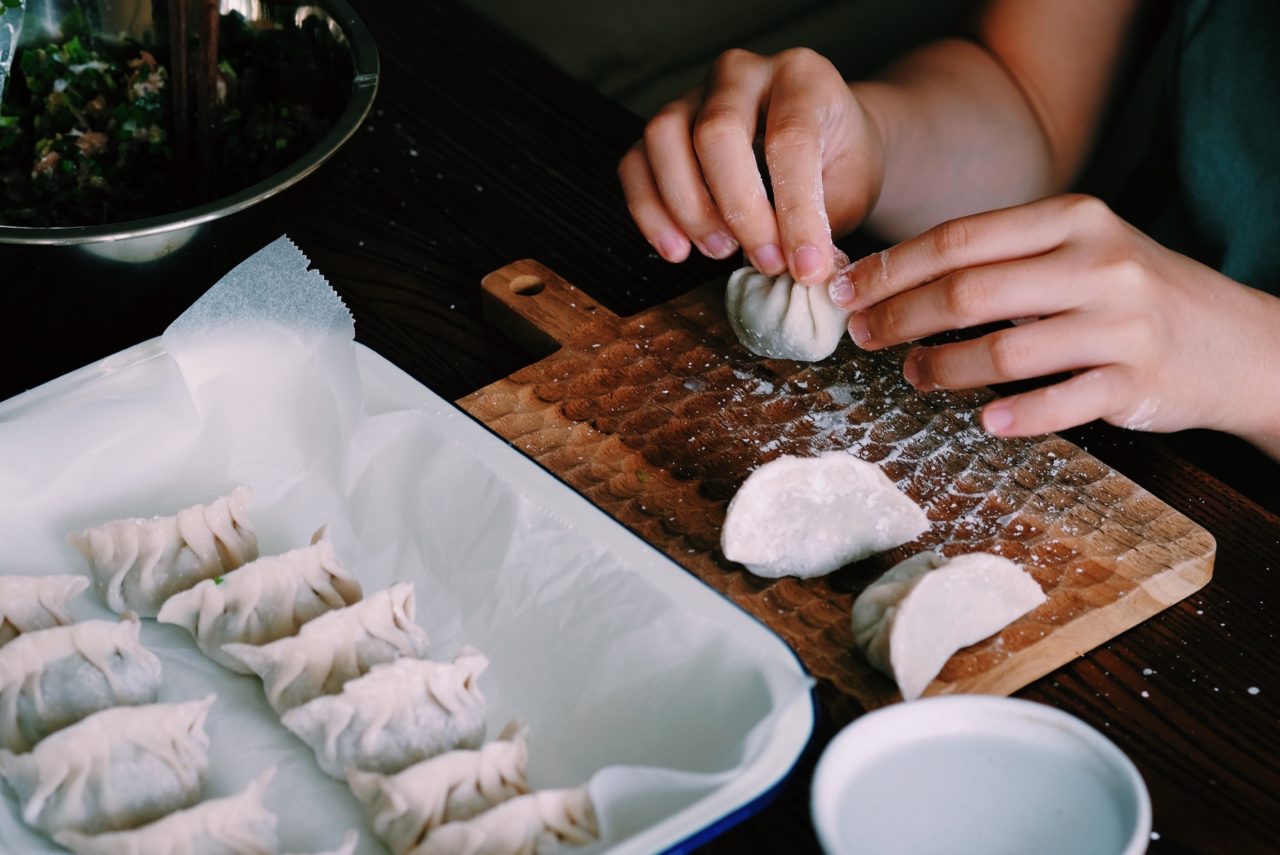
Spring was pardoned, and the summer heat hung in the air. Your face was drenched in sweat while eating, and I dried it with my paper napkin. One night, we went for a late supper. Your face was so covered with sweat that drop of sweat clinging on your nose tip almost dripped into your noodle. Looking at that silly face, I reminded myself to bring Kleenex for you from now on. Sometimes when I forgot to, I’d just wipe your face dry with my blue cotton scarf, or, my bare hand. You were always startled with my casual acts Somehow.
I put the last dumpling in your bowl. You halved it and put a piece into my bowl. I wrapped up the used bowls and trays in the kitchen cloth, and set for return.
“The mid-afternoon sunlight is so gentle.” I said.
“You are the gentle one” You replied with some delay.
I had been pondering what gentleness was.
Is it because I’m quiet? Or is it because how lightly I caressed your face?
Neither. It’s because how one contains pain. The pain of one’s own and others.
It is when one has profoundly experienced pain and sorrow, reconciled the grieve, and have
it assimilated to become one’s compassion. You wrap up your own wounds, and wish no
lives should bear the same as yours.
Sometimes, I imaged in times of sorrow, I could still hug you in my arms and kiss on your
forehead, whispering to you that “Don’t worry.” I still believed the days ahead will get
better. Gentleness is knowing how to wrap your pain and turn it into love.
It is, at the end of the day, a strong soul that can be gentle.
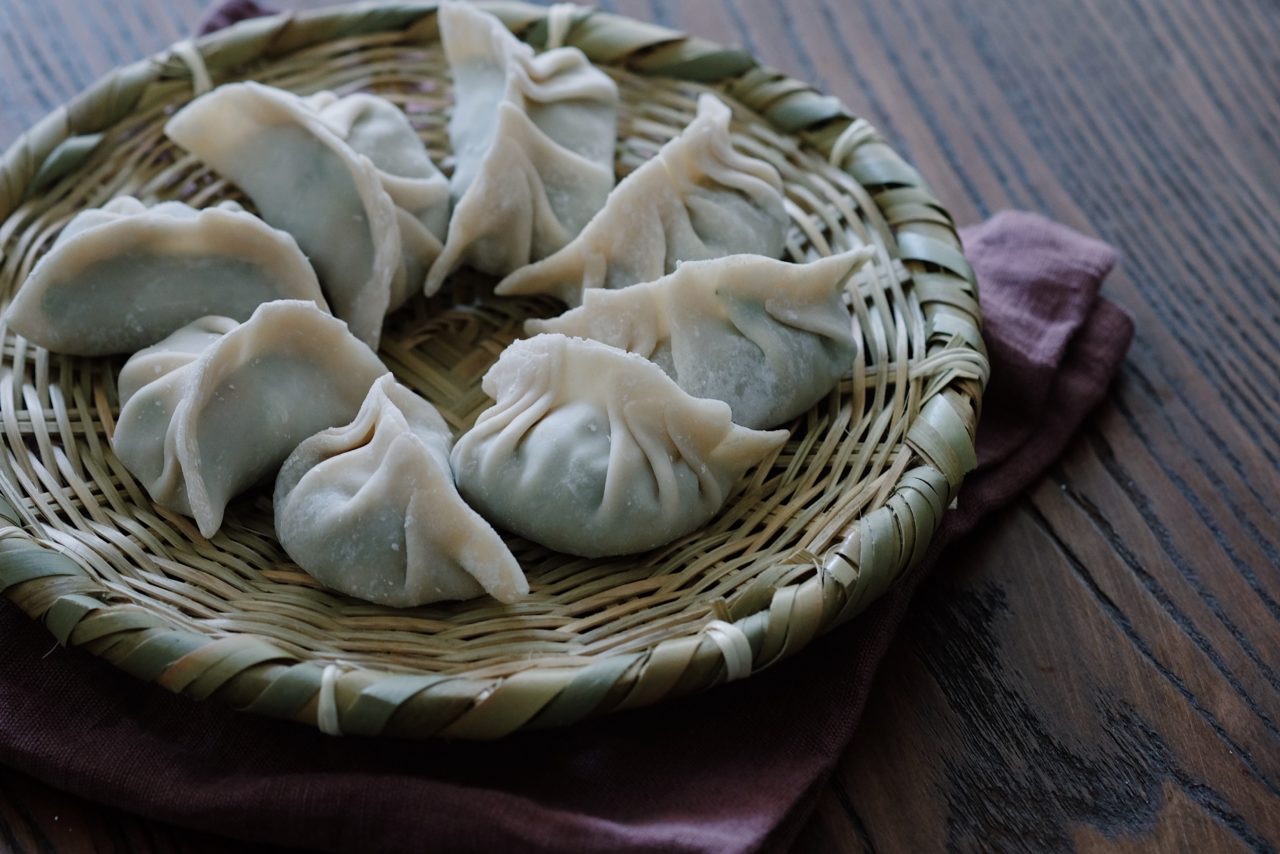
材料(約可包36個餃子):
豬柳梅肉 800克、韮菜 350克、餃子皮 800克、鹽 3茶匙、糖 1小撮、食油 1茶匙、麻油 半茶匙、水 半碗
做法:
- 豬肉切粒,再刴成肉末。
- 韮菜洗淨瀝乾,切小粒。
- 將鹽及糖加入以上材料,順時針方向拌勻。
- 加入食油及麻油,順時針方向拌勻。
- 將約一湯匙分量的餡料放上餃子皮,沿皮邊沾上水。
- 將餃子皮對摺,在中央點掐好,兩邊餃子皮往中央摺疊。
- 最後捏實所有摺口即可。
Ingredients (Yield about 36 dumplings):
Pork Tenderloin 800 grams, Chinese Chives 350 grams, Dumpling Wrappers 800 grams, Sea Salt 3 teaspoons, Sugar A pinch, Cooking oil 1 teaspoon, Sesame oil ½ teaspoon, Water ½ bowl
Instruction:
- Dice up the pork, and mince it.
- Wash and drain the chives, finely cut them into small pieces
- Add salt and sugar to the pork and chives, and mix them in the same direction.
- Add cooking oil and sesame oil to the above mixture, and mix them in the same direction.
- Put a spoonful of filling in the centre of a dumpling wrapper. Dap some water along the wrapper rim.
- Fold it into a half-moon and pinch the centre of the seam. Pleat 2 sides of the seam towards the centre.
- Pinch and seal the pleats.
Jo Liu
It’s raining outside, crisp and bleak. Three chubby sparrows took shelter on my balcony and I gave them the baguette bits left on my breakfast plate but they flew away. I stayed in, played Damien Rice on vinyl and made apple crumble. Repeat.
Instagram: foodialoguehk
